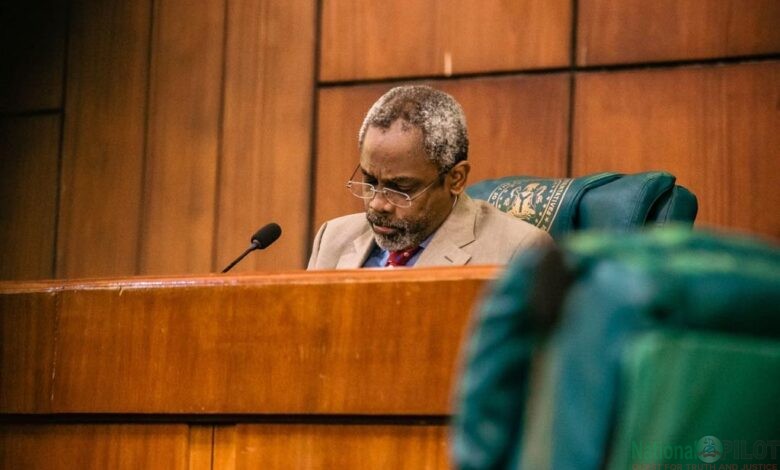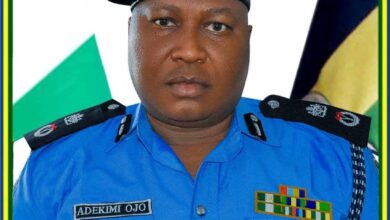
Following the outbreak of COVID-19 in Nigeria in 2020 and its consequences on the economy – economic recession and hike in essential commodity prices – Nigerians sought an effective response from the government – the executive and the legislature – in 2021.
As activities in the National Assembly restarted in February 2021, the common expectation was that lawmakers would kickstart legislative interventions to cushion the effects of the pandemic on Nigerians. Other than the supplementary budget, approval of loan requests and the annual budget, very little was done by lawmakers to directly relieve the citizens of the hardship brought by COVID-19.
Instead, the legislature and the executive engaged in bickerings over the 774,000 special works programme being supervised by the Ministry of Labour and Employment. Furthermore, the lawmakers are yet to question the proposal by President Muhammadu Buhari of N5,000 for 40 million poor Nigerians in the event of the removal of petroleum subsidy.
While the passage of the Petroleum Industry Bill and Climate Change bill has been lauded, the complicity of the House of Representatives in the war against the media and social media brought the lawmakers under criticism. Nigerians opposed the draconian National Broadcasting Commission and the Press Council bills introduced in the House by Segun Odebunmi (APC, Oyo) in 2021 which they saw as an assault on the media.
In summary, 2021 had its good, bad and ugly sides as far as the performance of the lawmakers is concerned.
The Good
In 2021, the House of Representatives broke the 17 years jinx of the Petroleum Industry Bill with the passage of the bill in July and the subsequent signing into law by President Muhammadu Buhari.
The House also passed the Climate Change bill sponsored by Samuel Onuigbo. After several failed attempts in past assemblies, the bill was not only passed but signed into law by President Muhammadu Buhari.
Legislative Interventions
In 2021, the House successfully intervened in several issues. In November, the Speaker, Femi Gbajabiamila, brokered peace between the federal government and the Academic Staff Union of Universities (ASUU), a move that stopped a pending industrial action by the union.
Such “parliamentary diplomacy” has become the hallmark of the House under Mr Gbajabiamila.
In December, he chaired a similar meeting between Nigeria and the United Arab Emirates over a crisis in the aviation sector between the two countries.
Recovered loots probe
In May, an ad-hoc committee investigating the status of recovered loots started the probe into all the assets recovered by the government.
In the first 10 sittings, the committee had in attendance the Minister of Finance, Ahmed Zainab; the Attorney-General of the Federation and Minister of Justice, Abubakar Malami; the Accountant-General of the Federation, Ahmed Idris; the Chairman of the Economic and Financial Crimes Commission, Abdulrasheed Bawa; the Customs Comptroller-General, Hammed Ali and several others.
During the investigation, several ministries, departments and agencies were queried by the committee, notably, the Attorney-General of the Federation, Mr Malami whose office was indicted for spending from the recovered loot account, and the accountant-general for approving money from the account without an appropriation from the National Assembly.
Six months after, the committee is yet to conclude the investigation as the focus of the probe has shifted to the banks yet to remit money deposited by MDAs before the implementation of the TSA.
Security Summit
After passing a series of motions and resolutions on security with little or nothing to show for it, the House in May decided to hold a security summit.
The summit which was attended by traditional rulers, the Secretary to the Government of the Federation, Boss Mustapha, representatives of the Nigerian Governors’ Forum and representatives of the military was aimed at providing a solution to confront the insecurity across the country.
Following the summit, the committee chaired by the Speaker gave 19 recommendations to address the security challenges facing the country. The recommendations were adopted by the House and with assurance from Mr Gbajabiamila that the president will ensure the implementation of the recommendations.
However, killings, kidnappings and general insecurity persisted across the country. In December, the Deputy Speaker of the House, Idris Wase (APC, Plateau), moved a motion on the surge in killings in his constituency.
The Bad And The Ugly
Stance on Twitter ban
When the federal government announced the ban on Twitter, the National Assembly was on holiday. There was the expectation that lawmakers would intervene via a resolution urging the government to reverse the ban.
Some members of the opposition had informed PREMIUM TIMES that they would resist any attempt by the leadership of the House to prevent lawmakers from voicing their concerns on the matter. However, when the House resumed on June 8, Speaker of the House, Femi Gbajabiamila outwitted the lawmakers by announcing a probe during his speech, instead of allowing a substantive motion that would lead to debates. Dissatisfied lawmakers had to stage a walk-out in protest.
The outcome of the House investigation into the ban was a tactical approval of the muzzling of social media.
“That time be allowed for the Federal Government of Nigeria and Twitter to enter into the dialogue process,” one of the resolutions reads.
Deaths in the House
In 2021, the House lost several lawmakers to the cold hands of death. Ossy Prestige (APGA) died in Germany on February 9 while treating an undisclosed illness.
In March, two members died. Haruna Maitala died in a ghastly motor accident along the Abuja-Keffi road while going to Jos, while Hassan Kila died at the National Hospital in Abuja.
In April, Suleiman Lere died at a hospital in Kaduna State. Also, in August, Adebayo Omolafe passed away at the Federal Medical Centre in Owo, Ondo State.
The spokesperson of the House, Ben Kalu (APC, Abia) blamed the death of lawmakers on the “financial status of the House.” According to Mr Kalu, members are under pressure from financial demands from their constituents.
Deputy Speaker blocks petition from Nigerians in Diaspora
Another ugly moment in the House was the drama that ensued between the Deputy Speaker, Mr Wase (APC, Plateau), and Mark Gbillah (PDP, Benue).
Mr Gbillah had attempted to present a petition from Association of Tivs residents in the United States. He was however stopped from doing so by Mr Wase, who was presiding over the session on that day.
The petition was on the displacement of some communities in Benue due to the armed herdsmen attacks in those communities.
Mr Wase argued that the group is composed of faceless individuals that have no locus on the issue. The farmers/herders crisis remains a sensitive matter due to the ethnic nature of the conflict. Even though Mr Wase argued that it was a matter of parliamentary procedure, it was viewed by many from the prism of ethnicity, because Mr Wase is a Fulani.
The argument on locus by the deputy speaker irked many Nigerians in Diaspora, who in a letter to Mr Gbajabiamila threatened to stop remittances to Nigeria. Days after, Mr Gbajabiamila overruled his deputy and permitted the same petition to be laid.
Gagging the media
Segun Odebunmi (APC, Oyo) was in the news in 2021 for all the wrong reasons. As a lawmaker with no background in media, he “authored” two bills to regulate the media. The NBC and the NPC bills sought to introduce draconian measures to regulate the media.
At the public hearing on the bills, members of the fourth estate of the realm and civil society organisations rejected the bills but the government delegation, led by Lai Mohammed, canvassed support for them.
Following the combined effort of the media and CSOs, Mr Odebunmi was forced to step down the bills.
Politicising insecurity…..
After countless motions and resolutions on insecurity with little or nothing to show for it, some lawmakers could not resist the temptation to politicise insecurity.
Shortly before embarking on the Christmas and New Year holidays, the deputy speaker moved a motion on recent killings in his constituency. During the debate on the motion, the Minority Leader, Ndudi Elumelu, who is notorious for making jokes out of issues, said he is happy that some members of the ruling party were feeling the heat.
“It has been going on and on around, I am happy that the number six citizen has been affected. I am happy that he has been affected….. The APC government has failed…..,”
He was cautioned by the speaker, who said “We are dealing with a matter that affects everybody, whether you are an APC member or PDP. We should not reduce such matters to partisan matters.”
While the lawmakers bantered, Nigerians are still living in fear due to mass abductions in schools, armed invasion of communities, kidnapping along highways, insurgency in the Northeast and general insecurity across the country.
Messy PIB, Electoral Bill
For three days in July, Nigerians sat on the edge of their seats, watching as the lawmakers deliberated on two important pieces of legislation, the Petroleum Industry Bill (PIB) and the Electoral Act amendment bill.
While the PIB deals with the economy, the electoral bill deals with electoral reforms.

As always, the lawmakers politicised the two laws. During deliberation, Nigerians saw their lawmakers in fistfights and all sorts of theatrics. Within the two days, the lawmakers treated the two bills along partisan lines.
2022 projections
In the new year, election activities will be in full swing and some lawmakers will prefer to be in their constituents rather than stay in Abuja. But Mr Gbajabiamila has assured Nigerians that the House will ensure that it continues to hold sittings in 2022 despite the electioneering activities that will be going on.
Meanwhile, there are several unfinished legislative businesses before the House. The ad hoc committee on constitution alteration has to conclude the process before the end of 2022.
The House also has to resolve issues around the electoral bill which the president has already rejected. While there is a clamour for the lawmakers to veto the president, Mr Gbajabiamila said it will be resolved in January without “throwing the baby out with the bathwater.”
President Buhari during a recent interview on Channels TV said he would be disposed to signing the electoral bill if the direct primaries clause is removed from the bill.





